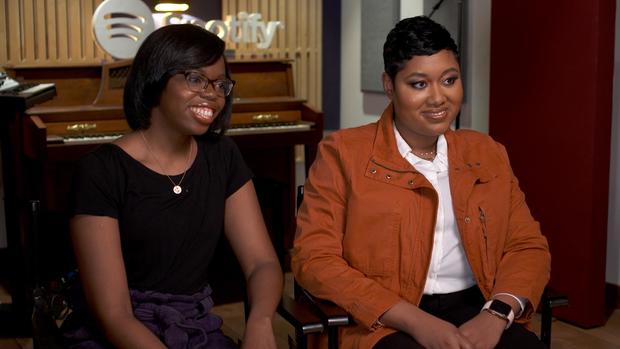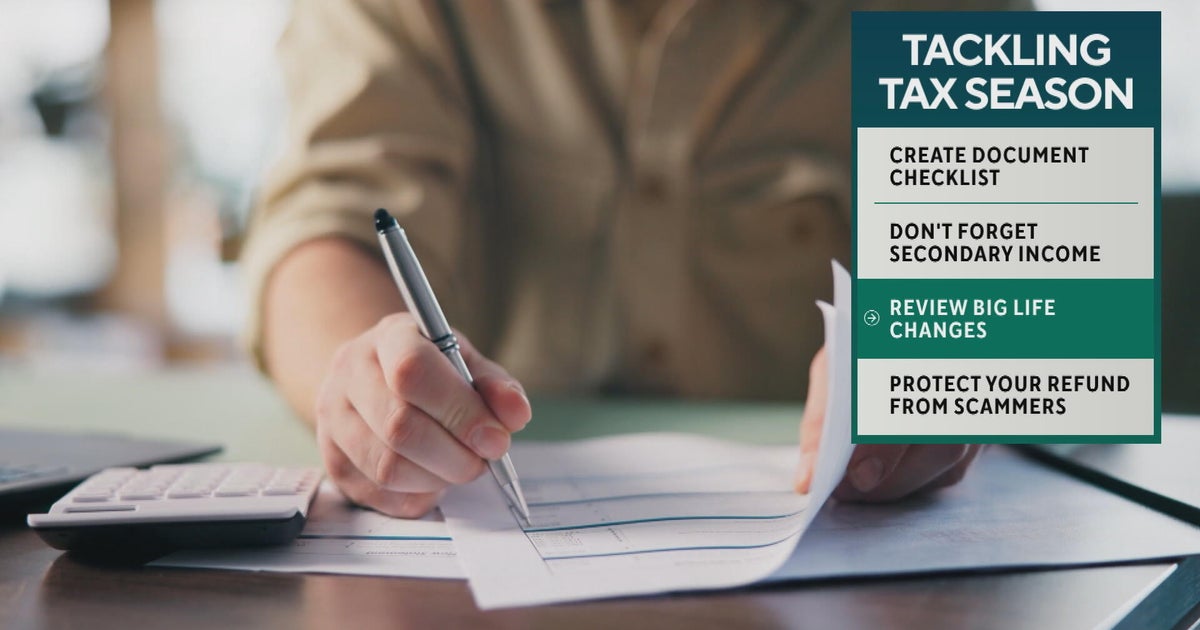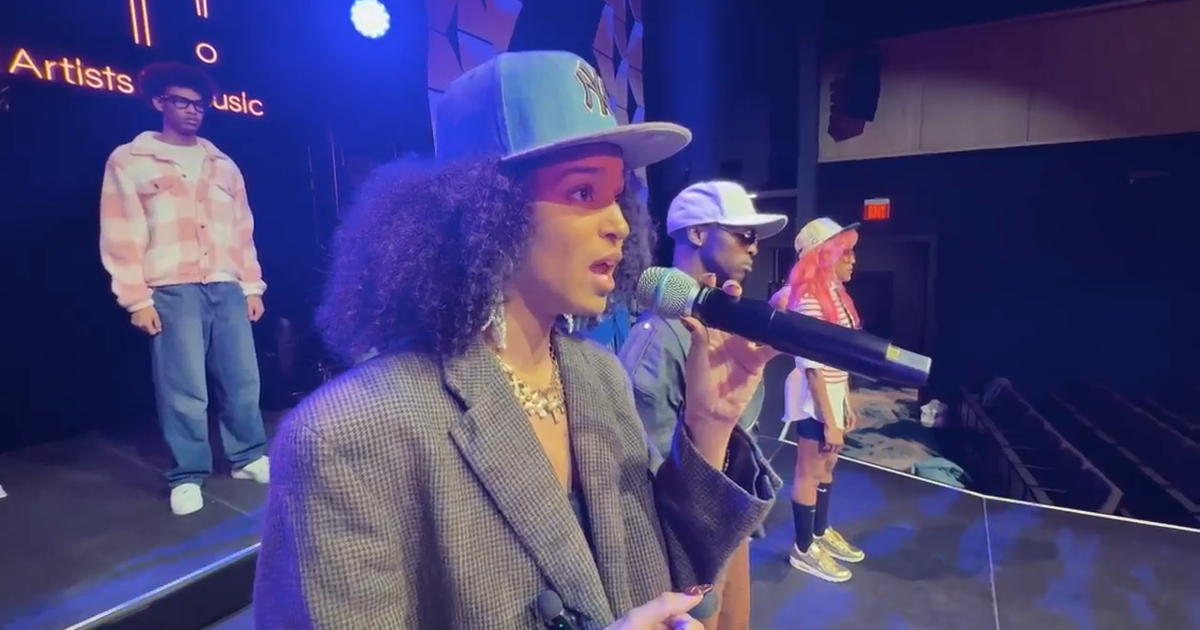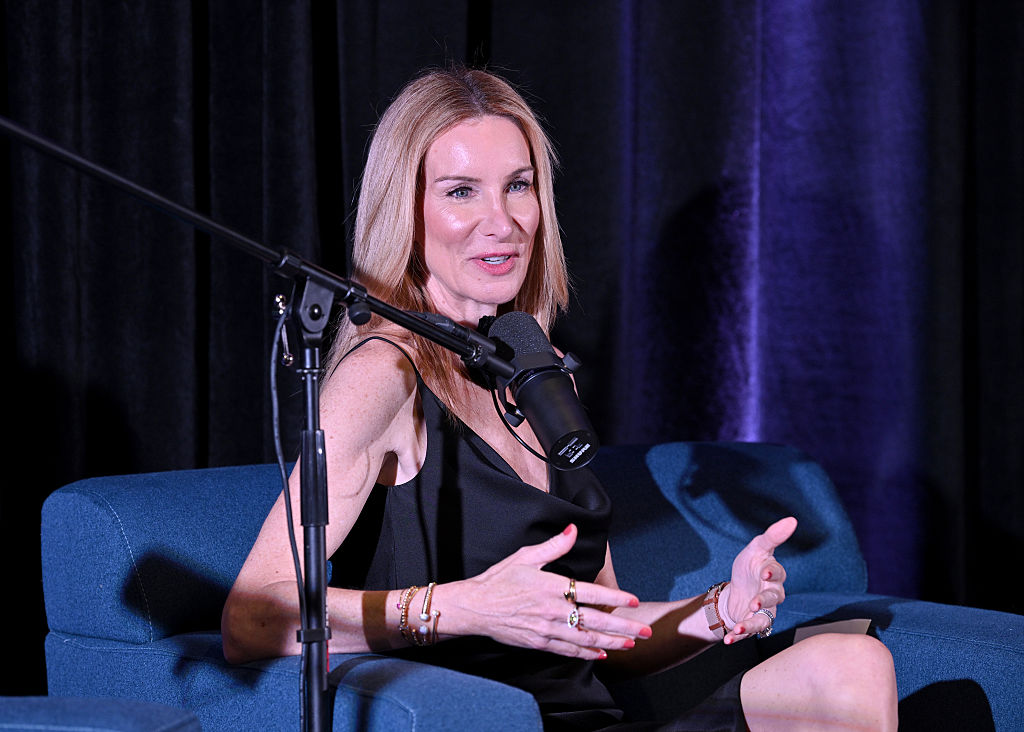Hated science in high school? Try this podcast
Titi Shodiya and Zakiya Whatley say their bi-monthly show "Dope Labs" isn't your typical science podcast. That's because they are not your typical scientists.
The Duke University-trained PhDs say their goal is to make science more inclusive and relatable. They believe science is for "errybody," which is reflected in what they cover: everything from vaccines and stars to what it means to be "big-boned" and even vibranium — the fictional metal from the movie "Black Panther."
"I would like to say that this podcast is for everybody. It's intentionally designed for people who are most often left out from science, right, and from the scientific narrative. So that's women, people of color," Whatley said. "So we try to center what's going on in those communities. So, we are on Instagram, Twitter and we're saying, 'What are people talking about?'"
They're not talking to their audience like a scientist would. And that's exactly the point.
"So, something we know is that we're qualified, right? We both have PhDs and so there's no need for me to perform for academia, the people we want to engage are the people that are outside of the scientific space," Whatley said.
"Our voices in this space are very important because there aren't very many voices that are like ours," Shodiya said. "When you think of the most famous black female scientist that's in the mainstream media, who is that? It's Doc McStuffins."
Shodiya admits she's a fan of the animated character who cares for stuffed animals in her playhouse clinic but said it's their hope that they can "break the mold" when it comes to what people usually hear when consuming science.
In one episode, they put the fact that humans share roughly 99.98% of their DNA with everybody else into a much more relatable context: "That means I share about 99.98% of my DNA with Beyoncé!"
Shodiya said she's most proud of what they've accomplished with "Dope Labs" when somebody tells them, "I never listen to podcasts but I listen to your podcast."
"You don't have to be this stereotype of what you feel like a scientist is," Shodiya said. "And that, usually, is a real eye opener for them when we get introduced as Dr. Zakiya Whatley, Dr. Titi Shodiya. And they're like, 'What? Her?'"
"One of the most powerful things we can do is just show up," Whatley added. "So, I think if we show up in these spaces as ourselves, I think that sends a message right there, right? That you can look like us and be a scientist. You can look like us and be anything you want to be."
Dope Labs launched through Spotify's Sound Up contest, a program that aims to increase diversity in the podcasting landscape by supporting shows hosted by women of color.




